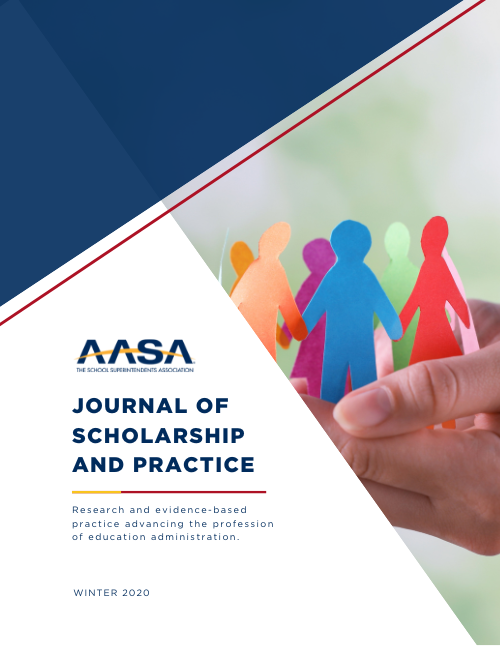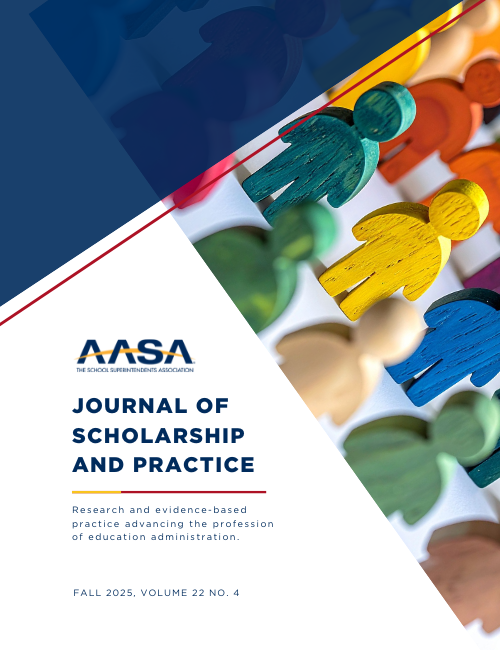2020 Winter Journal of Scholarship and Practice

Of the many roles school superintendents play, equity-focused leadership is one that will impact their students, the communities in which they live, and the societies into which they will eventually enter and contribute, perhaps for generations.
Superintendents have the control of or the opportunity to create powerful levers to exert forces for ensuring equitable opportunities for students within their systems. It is a matter of knowing how and when to use them, especially given equity’s elusive definition. After that, it is a matter of being prepared to deal with resistance.
Editor Ken Mitchell draws together research and evidence-based practice articles that attempt to make a contribution to this ambitious undertaking. The 2020 Winter volume of the AASA Journal of Scholarship and Practice kicks off with Mitchell’s editorial titled “Equity-focused Leadership: From Acknowledgement to Self-Awareness.”
The content in this Winter volume should provide leaders with a combination of research, recommendations, and tools to assist with reflection, organizational assessment, and perhaps the limitations on the “equitable distribution of goods.”
In their evidence-based practice article Jinger Gustafson, Natalie Rasmussen and Candace Raskin set the table for the readers by presenting a framework for examining and assessing existing practices and offering alternatives to disrupt any practice that fails to yield more racially conscious principals.
Anna Sun and Randy Miller follow with their research study of the relationship between school principals of color and the extent to which teachers of color are recruited.
In the third article, Steven Baule proposes in his evidence-based practice article how an effective approach via PBIS can mitigate, yet not resolve, the damaging effects of the disproportionality of student suspensions by race and ethnicity.
The volume concludes with research by Bernadeia Johnson, Lakisha Witter, and Jason Kaufman who explore ways in which African American superintendents cope with job-related stressors.
As pointed out by Mitchell, Pedro Noguera reminded us ten years ago of our responsibilities, along with our limitations: “The stereotypical images we hold toward groups are powerful in influencing what people see and expect of students. Unless educators consciously try to undermine and work against these kinds of stereotypes, they often act on them unconsciously. Our assumptions related to race are so deeply entrenched that it is virtually impossible for us not to hold them unless we take conscious and deliberate action.”
For the equity-focused leader, the work continues, Mitchell concludes.
Advertisement
Additional Articles
-
START with Race: Designing Racially Conscious Principals
This paper exposes the normalization of inherent racism and institutional power structures in existing principal preparation programs
-
Associations Between Principals of Color and Recruiting Teachers of Color In New Jersey Schools
Despite of a large number of studies on social justice, there is a scarcity of studies on how principals of color enact social justice leadership
-
The Impact of Positive Behavior Intervention Support (PBIS) on Suspensions by Race and Ethnicity in an Urban School District
This paper reviews the implementation of PBIS and queries the impact on middle school and high school suspensions in a midsized Midwest urban school district
-
Resilience and the African American Superintendent
This paper explores the extent to which race might influence how African American superintendents cope with the stressors of their leadership roles and the presence of support while in such positions.
Advertisement
Advertisement



